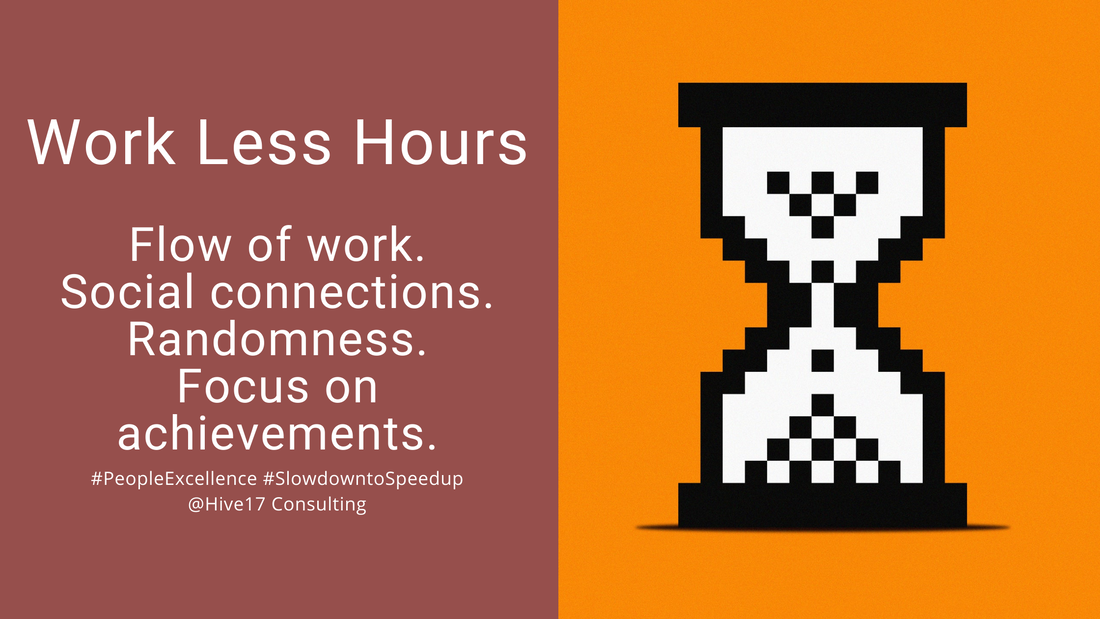|
Back when I was working in Europe, I had my tradition to be in the office over Christmas. Undistracted and focussed working time - that is what I was seeking. And I experienced in these weeks that I was able to complete a lot more work in the 5-6 hours at my desk. And here I am reading the scientific evidence of that:
“Research indicates that five hours is about the maximum that most of us can concentrate hard on something,” says Alex Pang, founder of Silicon Valley consultancy Strategy and Rest. Some companies have tried to reduce their working time down to 5 or 6 hours a day and saw productivity improvements. And the employees enjoyed the additional free time. A perfect balance. And yes, when we focus on work and remove distractions, we able to find a flow that allows us to get more done in less time. My experience is confirming this; when I am blocking 2 hours for a specific task, I am able to create a lot more results than if I am forced to split that into several 30 minutes slots. Though, it is not all sunshine with the 5-hour workday idea. The increase in productivity will not lead to additional output overall. The new productivity level will not translate into an 8-hour workday. Some managers might wish so. Companies also observed that the stress levels increased. Employees felt pressured to squeeze everything they have done in eight hours before in their new five hour period. This is not always easy and creates tension. And, in the long run companies observed that connections between the employees and relationships started to deteriorate. There is no time for a joint coffee or lunch break. That's how I felt in my empty office during the Christmas break: great to get things done; though, now I need to discuss my ideas with my peers and get inspired by them. This leads to another element that is essential for lasting success in a complex ecosystem: randomness. We need time to ponder and tinker; these watercooler conversations often spark new ideas. Idle time is one key ingredient to creativity. That is how we are solving problems. One final question: do we need to tell people how long and when they are working? I prefer to give people freedom and autonomy to choose their time for work. Instead, let's focus on the achievements which we aspire in our group:
It is great to know that our productive time is limited to five hours a day. Let's use this fact to reduce the pressure from people. Let them choose their preferred ideal working time. And let's start to focus on what really matters. How will you use these ideas in your team? Source: The perfect number of hours to work every day? Five, WIRED, June 2021
0 Comments
Leave a Reply. |
Subscribe
Receive our monthly themed summaries of our thoughts: click! TimTim is a change practitioner in the area of innovation and excellence. He is working with teams to accelerate innovation, collaboration and agility. Categories
All
Archives
July 2024
|


 RSS Feed
RSS Feed